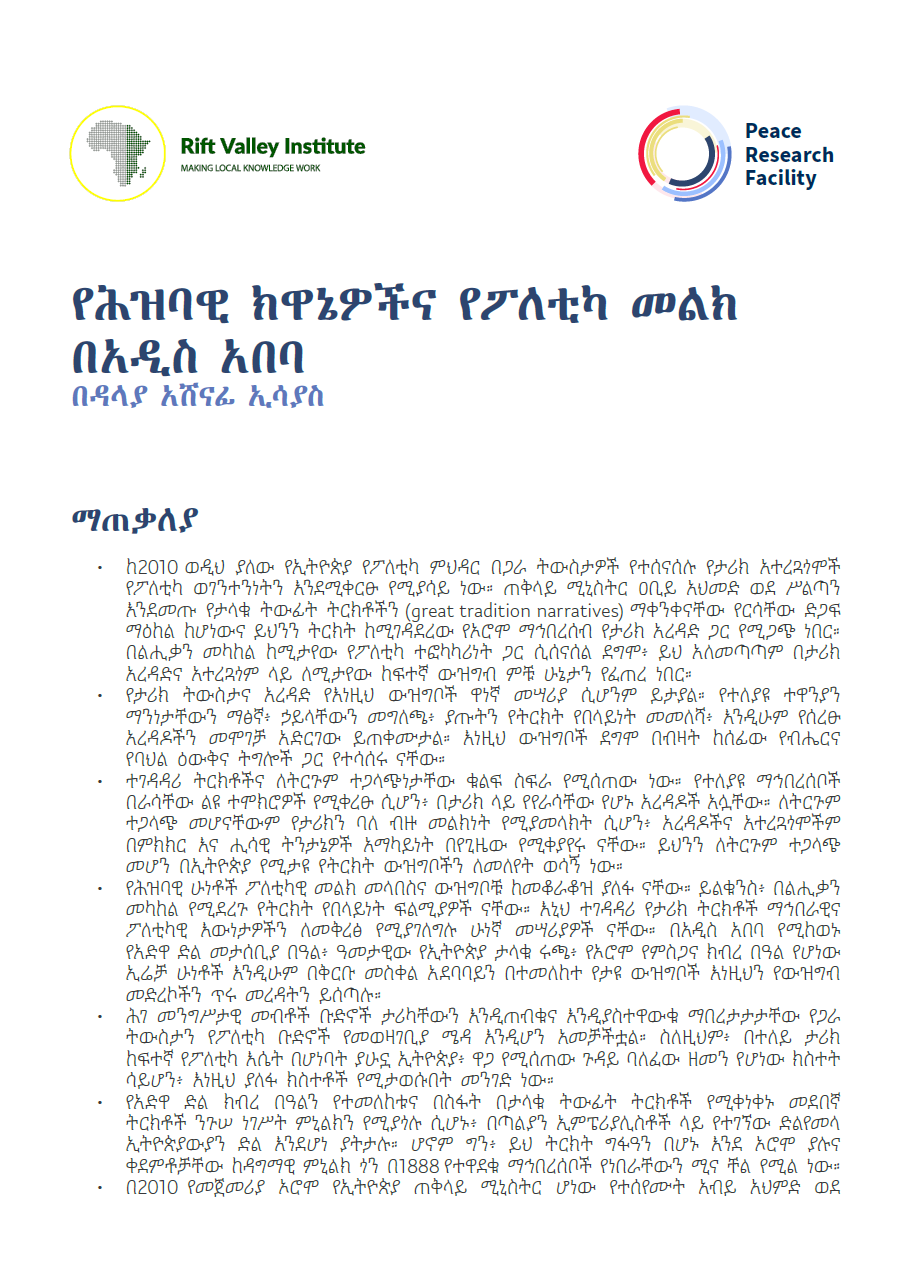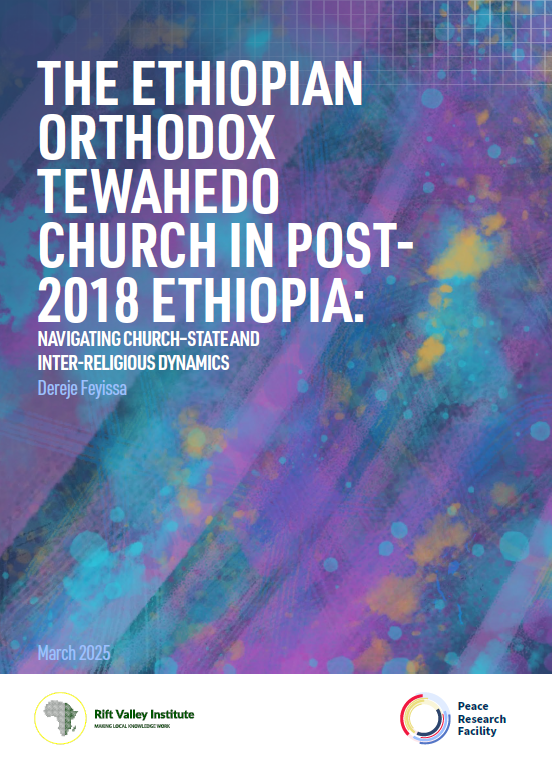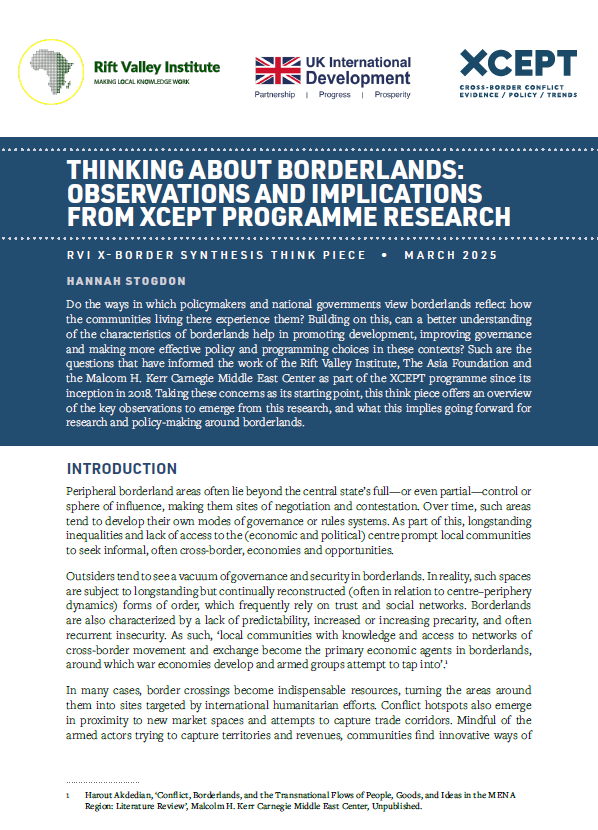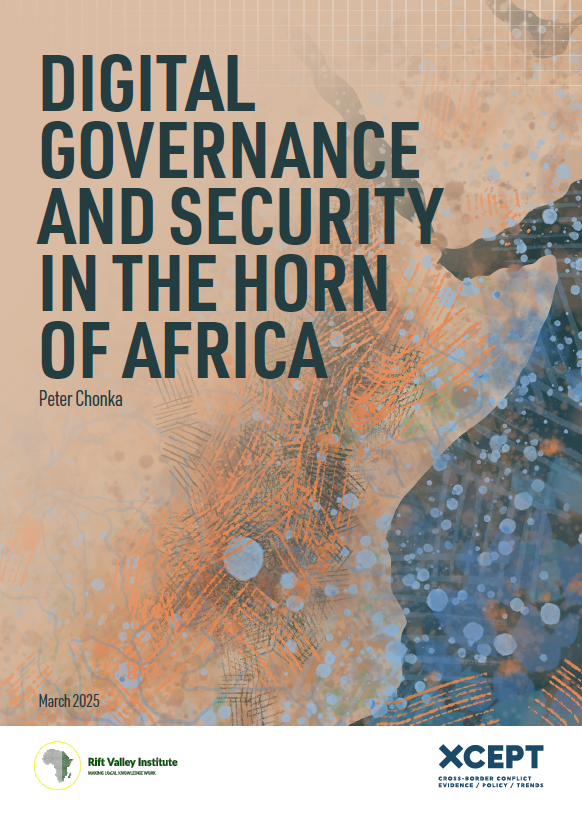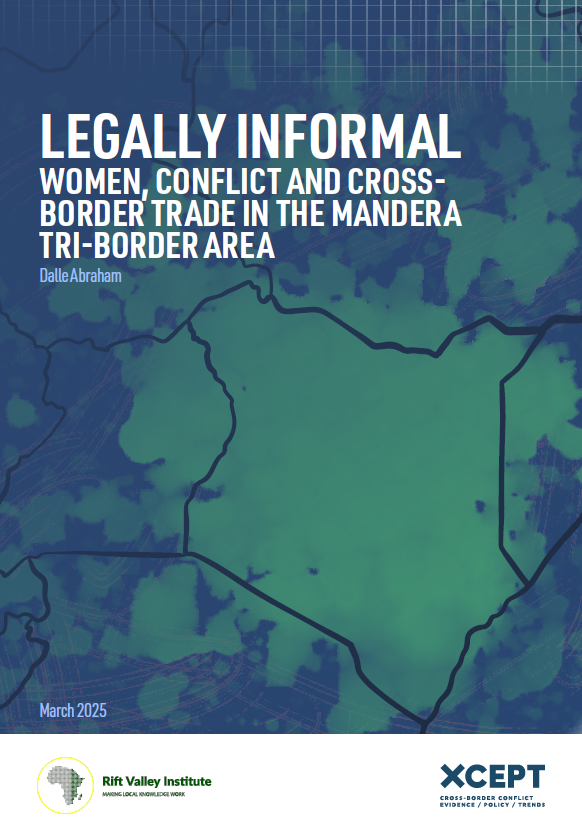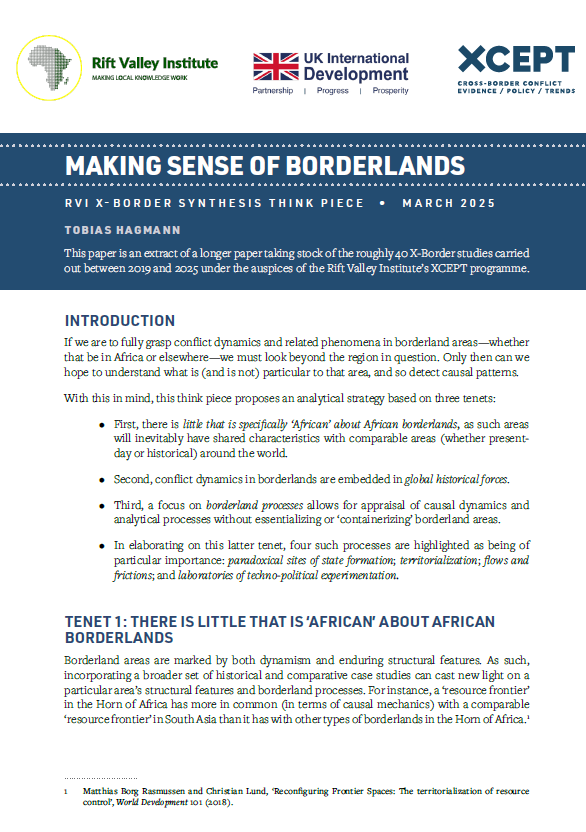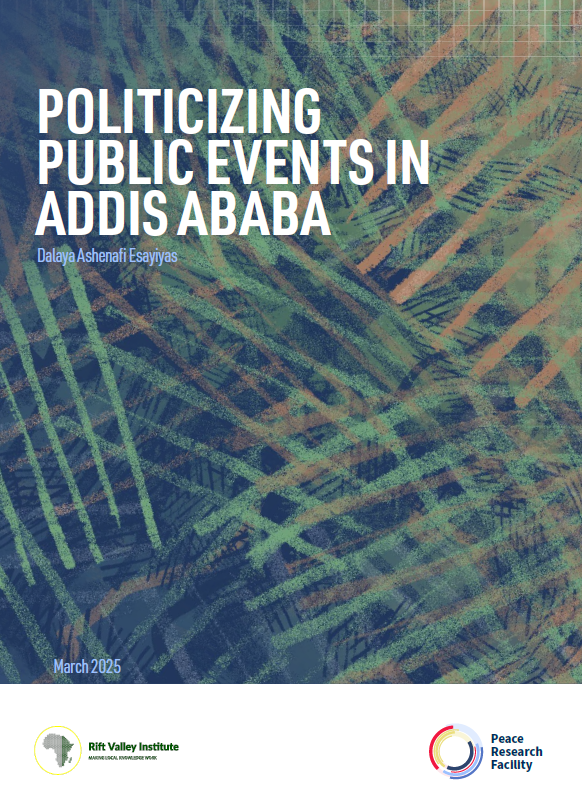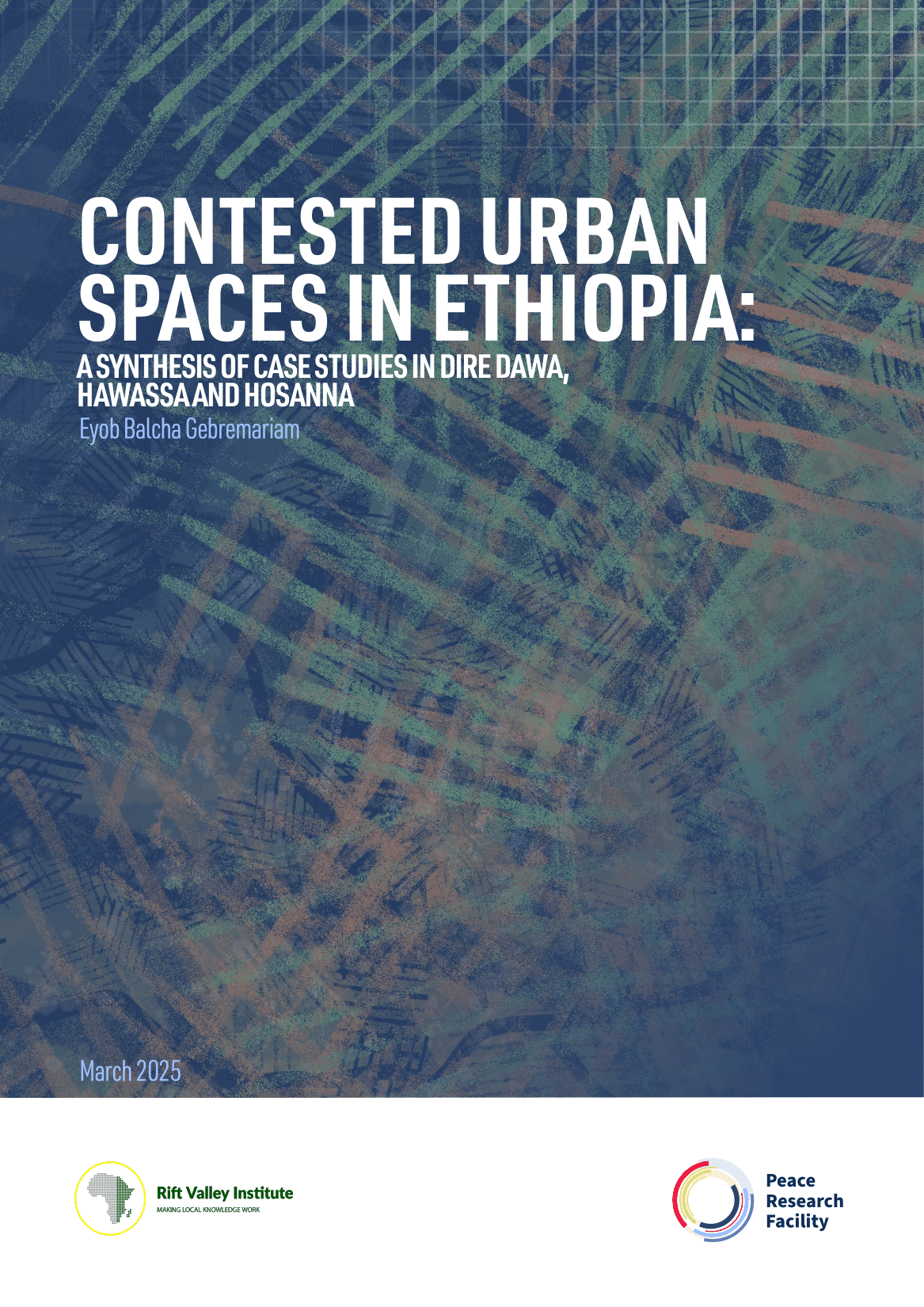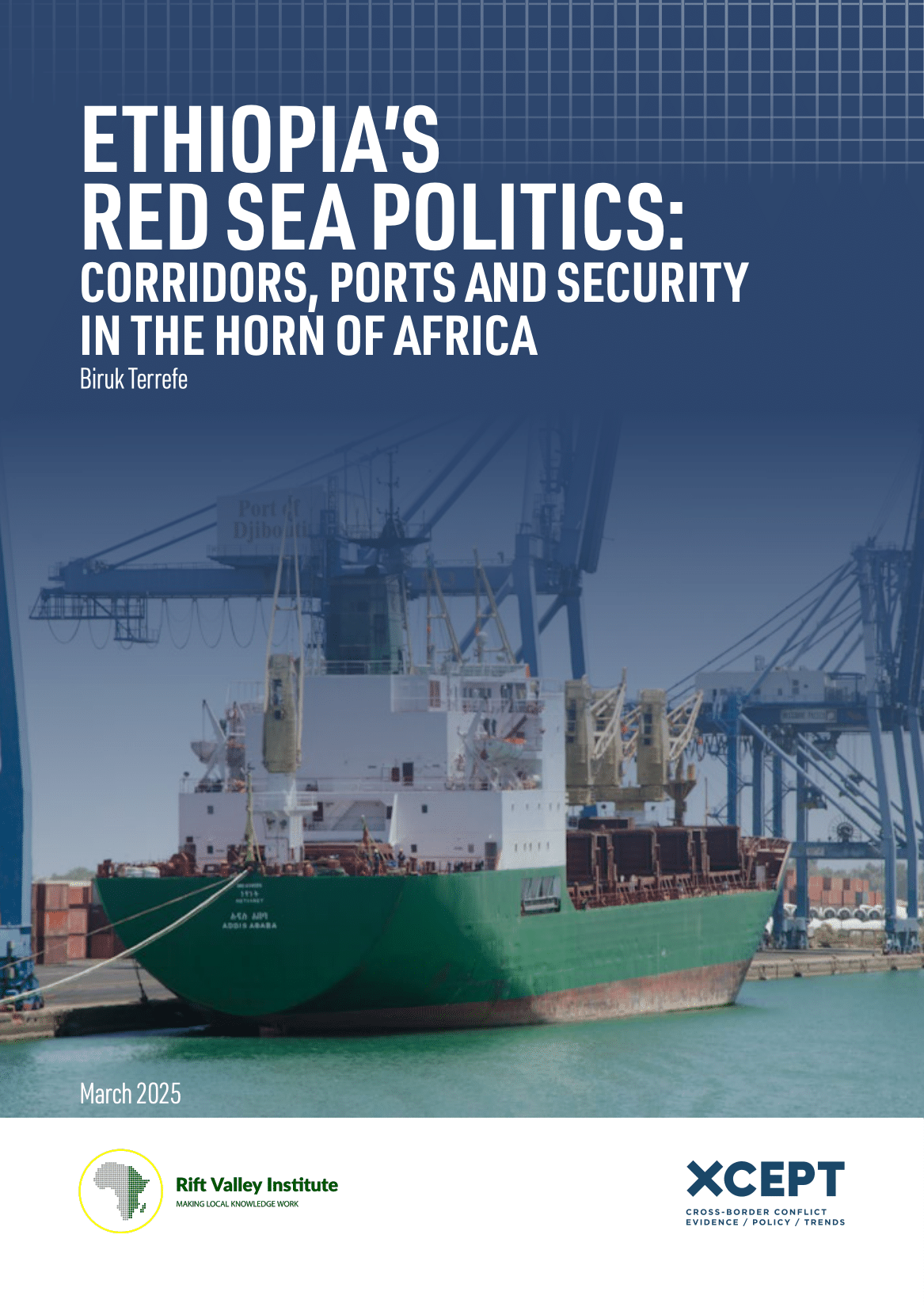ከ2010 ወዲህ ያለው የኢትዮጵያ የፖለቲካ ምህዳር በጋራ ትውስታዎች የተሰናሰሉ የታሪክ አተረጓጎሞች የፖለቲካ ወገንተንነትን እንደሚቀርፁ የሚያሳይ ነው። ጠቅላይ ሚኒስትር ዐቢይ አህመድ ወደ ሥልጣን እንደመጡ የታላቁ ትውፊት ትርክቶችን (great tradition narratives) ማቀንቀናቸው የርሳቸው ድጋፍ ማዕከል ከሆነውና ይህንን ትርክት ከሚገዳደረው የኦሮሞ ማኅበረሰብ…
RVI publishes books, research reports, research papers, briefings and meeting reports in a range of formats. Publications cover policy, research, arts, culture and local knowledge in the countries of eastern and central Africa. Research publications—books, reports and papers—are peer-reviewed. Some RVI publications are also available in French and/or Arabic.
The RVI is a signatory of the Budapest Open Access Initiative (2001); all publications are free for download in PDF format under Creative Commons licences. The views expressed in books and reports published by the RVI are those of the authors, not the Institute.
SEARCH
PUBLICATION TYPE
LANGUAGE
REGION
COUNTRY
The report highlights the overlapping claims to and distributive struggles over territory and resources in the Oromia-Somali borderlands which animated inter-regional competition between the Oromia Regional State (ORS) and Somali Regional State (SRS), resulted in the brief 2023 uptick…
This report examines the complex and shifting situation of the Ethiopian Orthodox Tewahedo Church (EOTC) in post-2018 Ethiopia, highlighting its struggle to maintain influence amid political, social and religious changes. In addition to examining both the current EOTC relationship…
Do the ways in which policymakers and national governments view borderlands reflect how the communities living there experience them? Building on this, can a better understanding of the characteristics of borderlands help in promoting development, improving governance and making…
While digital finance—including mobile money—has developed unevenly across Somalia, Ethiopia and Kenya, such technologies are nevertheless transforming everyday economic activities. In some cases, borderlands and cross-border financial flows are central to these digital developments and are driving further innovation….
In the Mandera triangle—a pastoralist region encompassing the point at which the borders of Kenya, Ethiopia and Somalia meet—the reality of local and cross-border trade often diverges widely from official state policies of control. This disjunction has created a…
This think piece is an extract of a longer paper taking stock of the roughly 40 X-Border studies carried out between 2019 and 2025 under the auspices of the Rift Valley Institute’s XCEPT programme. If we are to fully…
The political landscape in Ethiopia since 2018 exemplifies how historical interpretations rooted in collective memory can shape political alignments. Prime Minister Abiy Ahmed Ali’s initial embrace of great tradition narratives clashed with the historical perspectives of his core constituency,…
Studying urban contestations in Ethiopia’s secondary cities can help us understand how the urban centres outside of Addis Ababa are evolving during an ongoing period of significant socio-economic and political change. Ethiopia’s urban centres are the location of ongoing…
The Horn of Africa is a region marked by complex infrastructural interdependencies, where the decline and emergence of trade corridors continue to reshape the economic and political relations within and between states. This study draws on the Memorandum of…
Recent Publications

2025 Year in Review
February 16, 2026
The 2025 Year in Review provides an overview of the Rift Valley Institute’s work over the past year across eastern and central Africa. The report highlights RVI’s research and publication outputs, education and training activities, and public forums and convenings,

Rethinking Aid in Sudan and South Sudan
January 28, 2026
The brief draws on a joint convening held in Kampala, Uganda, in November 2025, which brought together more than 45 Sudanese and South Sudanese participants representing more than 30 grassroots organizations and international NGOs. Its primary objective is to amplify

EWNET Writes: Writing Workshop Session I
December 18, 2025
The Ethiopian Women Researchers Network (EWNET) inaugural writing workshop series aims to not only provide women researchers with uninterrupted time for their scholarly projects, but also build a supportive academic community. The first session, entitled ‘EWNET Writes: Writing Workshop Session

